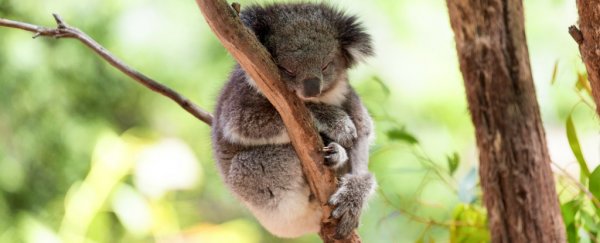Researchers have teamed up to tackle the problems of wildlife health and extinction in Australia, because with the disappearance of plants and animals that are found nowhere else on Earth, they say the local environment is at a breaking point.
"Unique species of flora and fauna are disappearing at an alarming rate and we are not doing nearly enough to save them," says one of the team, Michael Wallach, from the University of Technology Sydney (UTS). "After decades of inaction, the problem has become critical."
The newly formed Wildlife One Health Initiative, which involves UTS researchers from a range of disciplines, aims to find solutions to a number of urgent problems affecting Australia today, from the decline in populations of koalas and quolls, to the serious threats for the Great Barrier Reef.
"It's not an easy task, but our approach is a very powerful one," said Wallach.
"We have combined the tools of highly sophisticated genetics, immunology, and epidemiology with the expertise and strategies of wildlife ecologists and sustainability researchers to investigate current predicaments and find solutions."
So far, the researchers have found that having populations of native apex predators, like the dingo, can be better for both the wildlife and farmers in the long run. This might even be able to stop the culling of dingoes around the country.
They've also shown how wildlife-friendly production practices can lower the need for pesticides.
Next, they're looking at solutions to problems in wildlife health, biosecurity, animal-to-human diseases, and food quality issues.
One group is investigating chlamydia-induced infertility in koala populations, which has devastated their numbers over the past few years.
Another group has been working answers to antibiotic resistance, and how it's passed on from bacteria in animal populations to humans.
The team says they're also figuring out how to protect Australia's natural resources, such as the Great Barrier Reef and local bushland, from the impact of climate change.
"The initiative, guided by principles that promote peaceful co-existence between humans and wildlife, is working to help restore the balance between our wildlife needs and the needs of the ever-expanding human population," says Wallach.
"This balance requires an understanding of the intricate relationships between humans, animals and the environment."
You can find out more about the team's research here.
UTS Science is a sponsor of ScienceAlert. Find out more about their research.
